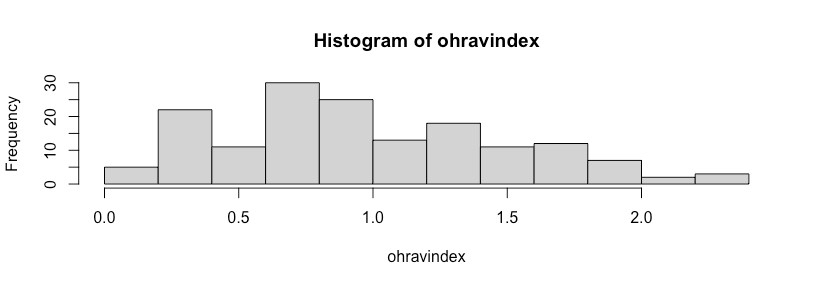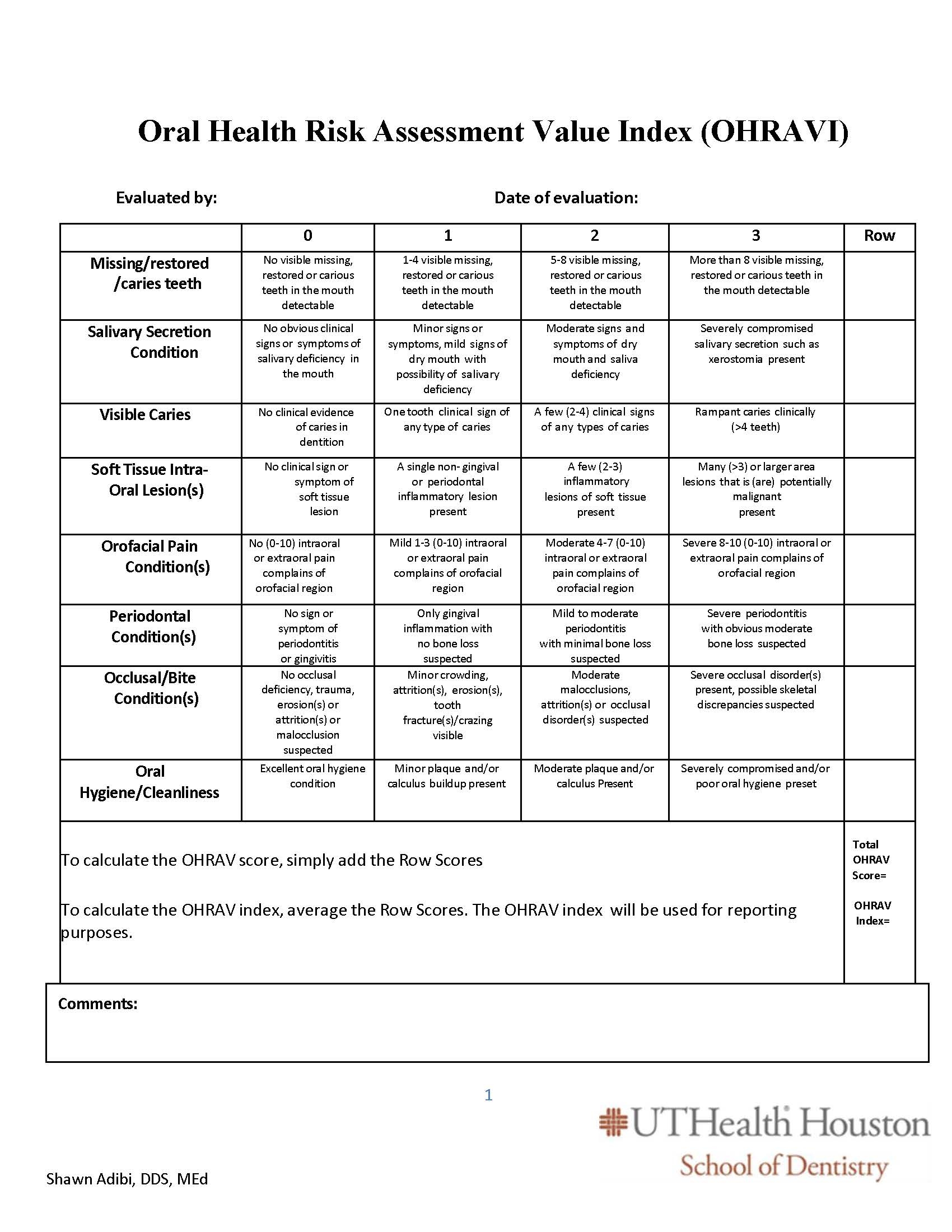IADR Abstract Archives
Introducing Oral Health Risk Assessment Value Index (OHRAVI)
Objectives: Oral Health Risk Assessment Value Index (OHRAVI) is a quantitative instrument for use by health care professionals that assesses a patient’s oral health based on eight categories to produce a descriptive index value.
Methods: Convenient sampling was used to recruit participants at three clinical settings at UTHealth Houston. Each participant (n=270) was evaluated using the OHRAVI form to evaluate and determine their OHRAVI score. Prior to each session, a calibration meeting was conducted to ensure uniform understanding of the tool among the raters from dental students, faculty, physician, medical assistant and research assistance with varied dental experience and knowledge. Using R statistical software, we used kruskal Wallis tests to examine if any of the eight subcomponents of the OHRAVI index varied with race or gender. ANOVAs were used to assess if the OHRAVI index varied with gender, race, or age.
Results: None of the subcomponents nor the overall index itself varied significant with gender, race, or age where data was collected(n=159). Such lack of effects of these demographic variables indicate that the ORHAVI index is robust, and not sensitive to variation among specific demographics, which strengthens its feasibility of a tool for use in clinical settings.
Conclusions: These findings indicate the OHRAVI is useful across demographic variables and does not display inherent bias associated with participant gender, race, or age. OHRAVI was shown to be a reliable and user-friendly tool. This study suggests that OHRAVI can provide an important new tool in the dental public health setting to evaluate oral health trends in individuals and communities. OHRAVI can be used to monitor patient progress over long period of time and evaluate outcome measures for varied size population. Future studies in large population and long term follow ups are recommended.
Methods: Convenient sampling was used to recruit participants at three clinical settings at UTHealth Houston. Each participant (n=270) was evaluated using the OHRAVI form to evaluate and determine their OHRAVI score. Prior to each session, a calibration meeting was conducted to ensure uniform understanding of the tool among the raters from dental students, faculty, physician, medical assistant and research assistance with varied dental experience and knowledge. Using R statistical software, we used kruskal Wallis tests to examine if any of the eight subcomponents of the OHRAVI index varied with race or gender. ANOVAs were used to assess if the OHRAVI index varied with gender, race, or age.
Results: None of the subcomponents nor the overall index itself varied significant with gender, race, or age where data was collected(n=159). Such lack of effects of these demographic variables indicate that the ORHAVI index is robust, and not sensitive to variation among specific demographics, which strengthens its feasibility of a tool for use in clinical settings.
Conclusions: These findings indicate the OHRAVI is useful across demographic variables and does not display inherent bias associated with participant gender, race, or age. OHRAVI was shown to be a reliable and user-friendly tool. This study suggests that OHRAVI can provide an important new tool in the dental public health setting to evaluate oral health trends in individuals and communities. OHRAVI can be used to monitor patient progress over long period of time and evaluate outcome measures for varied size population. Future studies in large population and long term follow ups are recommended.


